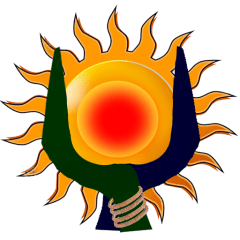Development and empowerment of leadership in Elgar is going to be a prominent feature of the programmes that we undertake this year. Training and preparing the leadership for organisational challenges, apart from imparting them with skills required, would require grooming of the volunteers into the ideology of the organisation. Conversations with staff (karyakartas) have brought to the fore the complete absence of ideological grooming and cultivation of ethos that confirms to the organisational ideology and ethos. The binary needs to be addressed to closely integrate work sphere and ideology. This in turn has led to the development of a binary in volunteers and karyakartas alike that organisational work is somehow not connected with any ideology and work sphere is different from the ideological sphere. The key focus of the training programmes this year is going to be discussions around world view and perspectives that source organisations’ work and how the struggle for a particular kind of ideology is intrinsic to the everyday struggles of justice. The key theoretical elements that are going to be used in the preparation of the training modules are:
1. Incorporating Constitutionalism in the understanding of the everyday work. Key features of the Constitution that should inform our world view and perspective of issues.
2. Incorporating topics and facilitating an in depth discussion on topics that have dominated the Indian political, economic, and social scenario in the last five years. How these issues, although seemingly far way from districts’ life (Chandrapur) are inextricably linked with the work that organisational leaders do in the district. Some of the representative issues would be demonetisation, GST, certain Supreme Court judgments that have defined our social and economic fabric etc.
3. Introducing concepts like secularism, communalism, struggles around history, discussions on certain historical personalities (appropriation), feminism, patriarchy and various subtle and unsubtle ways in which it informs our decision making and also shaping of our worldviews.
4. Understanding news. Digital media platforms and information dissemination on whats app and facebook. How this information dissemination is laced with ideology.
5. Family and domestic sphere and seamless contradictions through which we lead our lives. Realisation of this contradiction esp. with regard to reinforcement of patriarchal values in our everyday lives. Hence to aim for a gender equitable social and economic structure.
6. Tapping into cultural resources that reinforce values of equality and justice; such as Rashtrasant Tukdoji Maharaj Gram Geeta and his immense influence in our work area.

